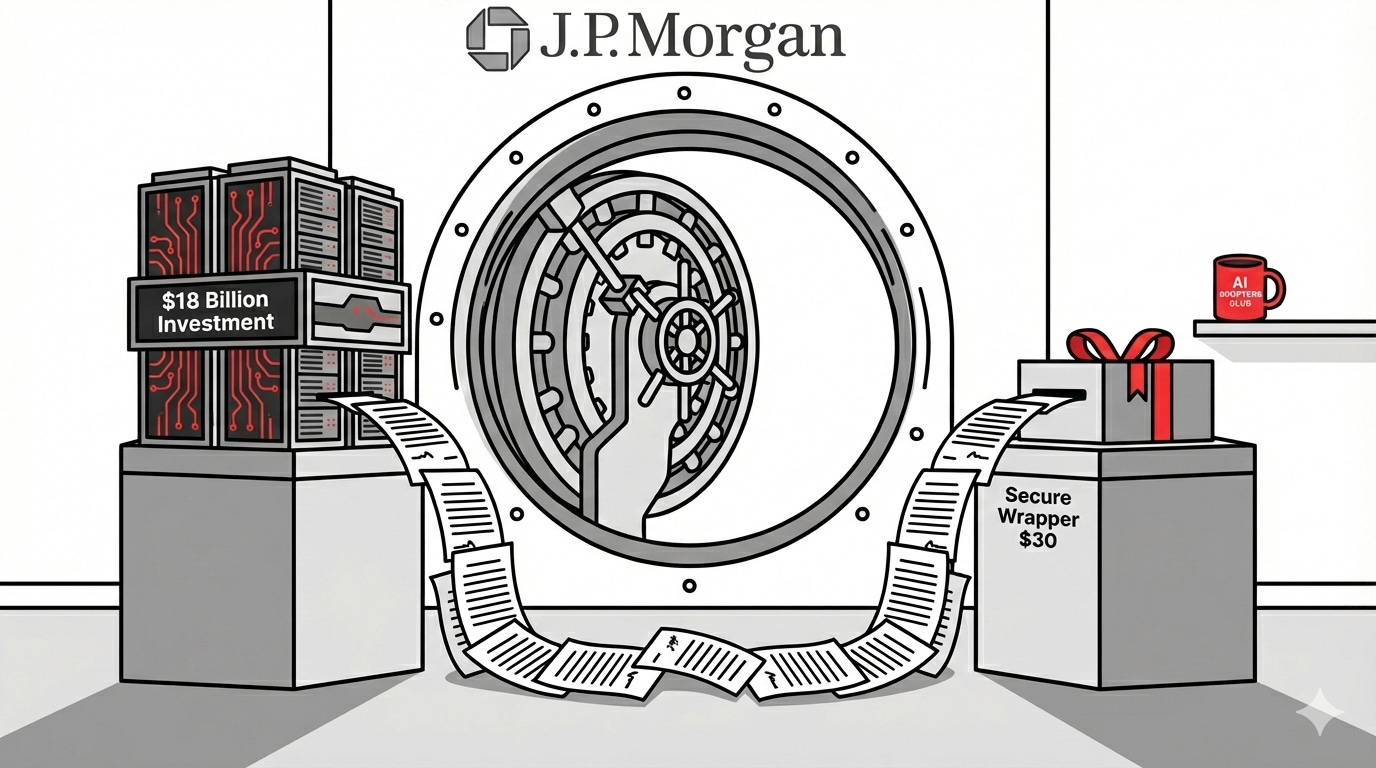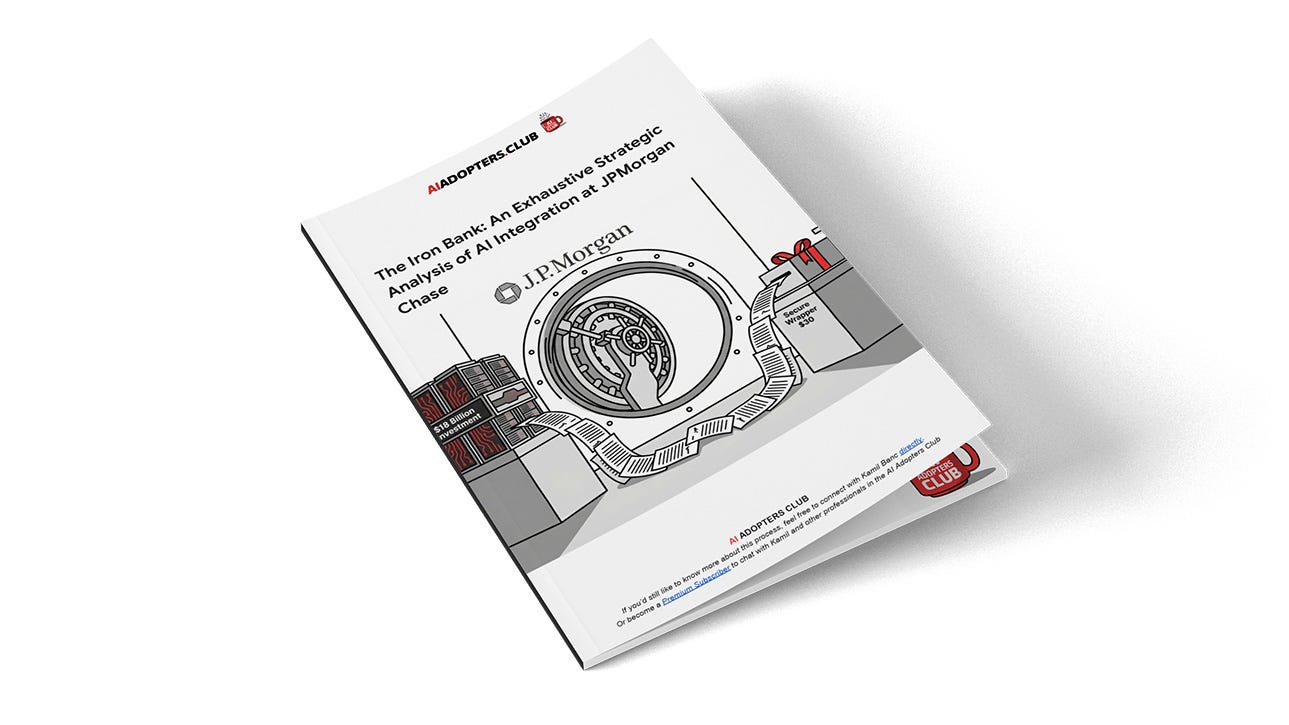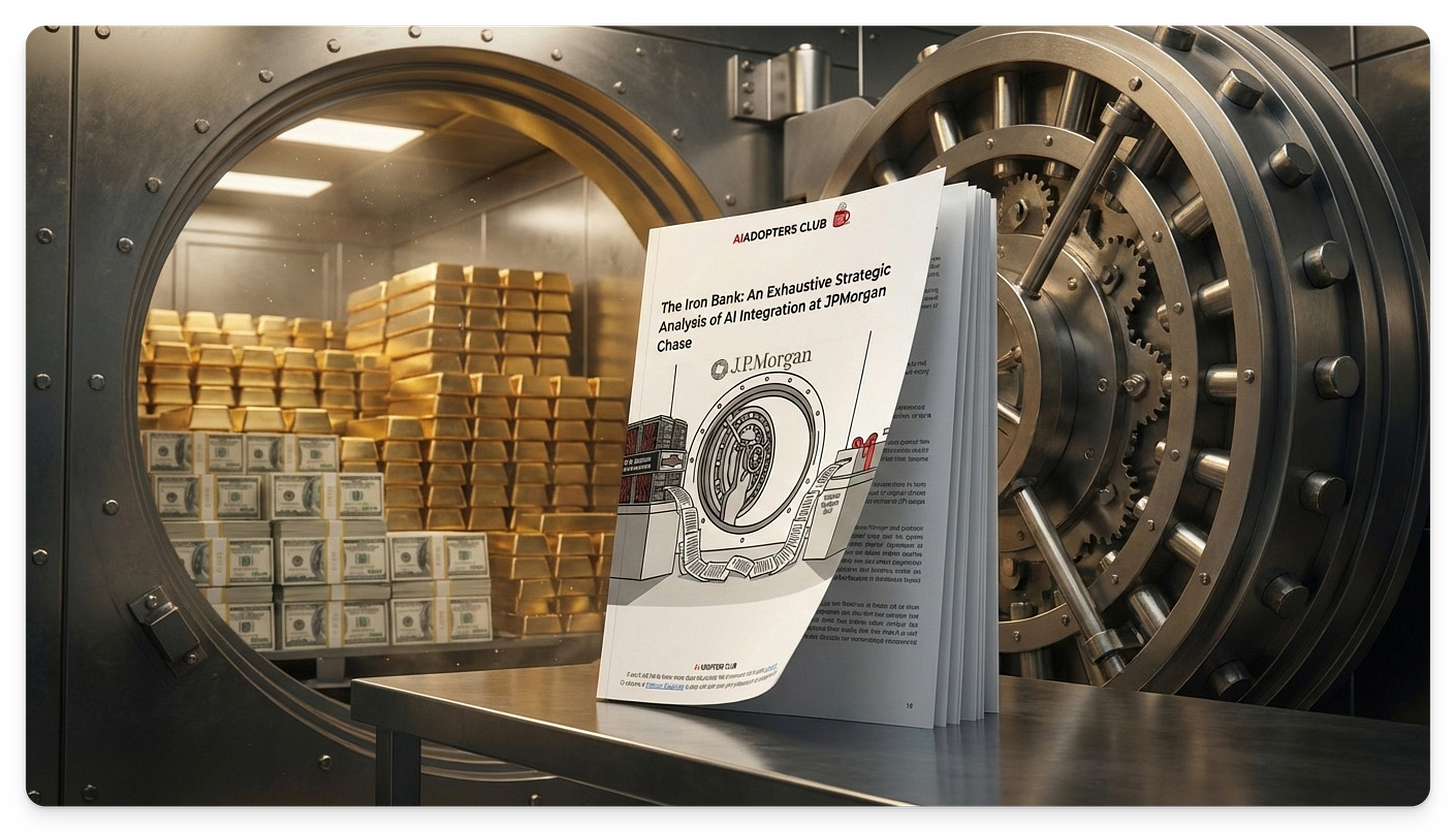JPMorgan Spent $18 Billion on AI. The Best ROI Came From Contract Review.
Not fraud detection. Not personalization. Boring document automation beat everything.
Hey Adopter,
JPMorgan spent $18 billion on technology and generated $1 billion to $1.5 billion in AI value. That’s a 12-to-1 cost ratio. They’re not printing money. They’re buying optionality at enterprise scale.
The real story is what worked. COiN automated contract review and saved 360,000 hours annually. Coding assistants raised developer productivity 10-20%. Meeting summarization. Email drafts. Document processing.
All the wins came from one move: giving employees a secure version of ChatGPT.
What JPMorgan did wrong and what you can skip
The bank built three massive platforms before deploying anything. Gaia private cloud, OmniAI for MLOps, Data Mesh for governance. Two years of infrastructure work. Then they discovered employees were already using ChatGPT and just needed the secure version.
They rolled out LLM Suite to 140,000 employees. A wrapper around GPT-4 that blocks data leakage. Productivity jumped immediately. The expensive platforms came later.
Good news: you can skip straight to the wrapper. Microsoft Copilot costs $30 per user monthly. Azure OpenAI Service runs $0.03 per 1,000 tokens. Both solve the core problem JPMorgan spent billions engineering around.
Download the full case study for what worked, what failed, and the three-week plan to deploy this
Why contract review delivered better ROI than customer-facing AI, and how to identify your equivalent
The fraud detection system that cut rejections 15-20% but required three years of data pipeline work first
Why employees are pushing back on AI performance reviews even at JPMorgan, and what that tells you about deployment limits
The vendor trap that costs $10,000 monthly minimum and delivers nothing your team needs
Block ChatGPT today, deploy the wrapper tomorrow
Your employees already use ChatGPT. Check browser histories. They’re pasting customer emails, contract excerpts, and strategy memos into public interfaces. Each query trains OpenAI’s models on your confidential data.
JPMorgan solved this by blocking public ChatGPT at the firewall and giving employees LLM Suite instead. Same interface, contractual data protection. Productivity stayed high, data leakage stopped.
You need: Microsoft Copilot for M365 if you run Office, or Azure OpenAI Service if you need custom deployment. Both keep your data inside your tenant. Both cost less than one consulting engagement.
The data ownership rule that prevents decay
JPMorgan learned this the expensive way: centralised data teams create bottlenecks. The sales team requests a report, IT says three months. Data quality tanks because nobody owns accuracy.
The bank moved to Data Mesh: sales owns sales data, support owns support tickets, finance owns transaction records. Each team treats their data like a product, publishing clean datasets via APIs.
Translation: stop asking IT to be the data janitor. Make the team that creates the mess responsible for cleaning it. Sales VP owns CRM data quality. Support director owns ticket categorization. This works at 50 employees or 50,000.






